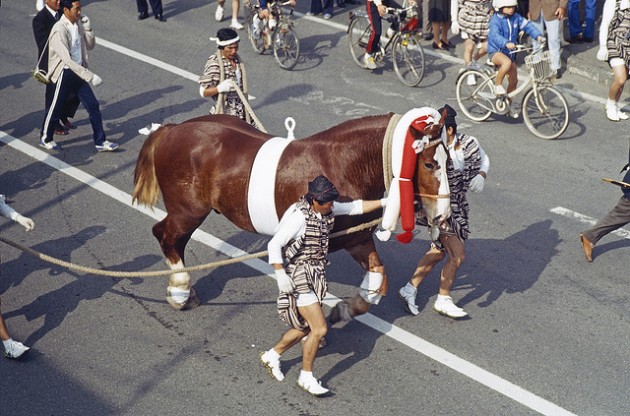Okay everyone, this will be Melissa’s last blog post for now. This was meant to be the first post, but they kinda got posted out of order. We hope you’ve enjoyed her lovely tales of adventure. Hopefully we’ll get some more if we ask nicely!
Hello Everyone! My names Melissa and Hikari asked me tell a story or two about my experiences in Japan. To start off I am with the JET program, which is a program for foreigners (yeah us!) to teach English in Japan at nursery, elementary, junior, and high school level. This will be my 2nd year in the JET program and I am loving it!
But not all of my experiences have been rainbows and unicorn poop. Like any person traveling to a different country there were many cultural misunderstandings. In this neck of the woods of Japan, the elderly speak a very special kind of Japanese called “Kuma-ben” which is a nice way of saying that they speak hillbilly. My Japanese skills have never been superb but I thought I could get by. That was until I ran into my first obaa-chan (granny). She stopped me in the street and just kept chattering away. I tried to watch her mouth to perhaps garner a small kernel of what she was saying but alas nothing was making sense. This is where I discovered that all foreigners in Japan can get away with having an entire conversation, not understand a single word, using only 5 words.
Now there are the usual yes/no, nod/guttural sounds (for example `はい` (hai) or `そう、そう` (so, so)) all Japanese people make, but there are a couple of responders that work wonders with the elderly. `honto/honto-ni`(本当/本当に) is an expression showing your shock or surprise towards something. Kind of like the English “really?” response we do. `So-nan-da`(そうなんだ) is used to show that you understand something, sometimes but not always the situation is explaining something more serious or perhaps sad (not ALWAYS but sometimes). This would be the Japanese equivalent to “I see…” or “Is that so?” in English. Then there is `naru-hodo` (なるほど) which, like `so-nan-da`, is used to express understanding but in this case you are expressing your understanding towards something that was only recently clarified in the conversation. This would be our “ok, I got it” in English. Then there is the ever wonderful `majide`(まじで!). This, simply put, is “no way!”. An exclamation of surprise or disbelief, and for a foreigner there are plenty of things for you to `majide` about. With these wonderful words in your tool belt you are ready to go.
This is where I return back to my story. As I watched the obaa-chan’s face I looked to see what kind of expression she wore. I also paid attention to her tone of voice. I matched her tone of voice with my responder. If it looked like she was trying to say something interesting or perhaps shocking, I responded with a `majide` or `honto-ni`. If she looked to be saying something more serious or somber then I responded in kind with a `naru-hodo` and did minimal responses. Small head nods and hmms here and there will be enough for that person to think you understand. So the most important thing to remember is to always read the other person and go from there. Read their reactions to your responses and run like the wind when you finally come up with a viable enough of an excuse.




